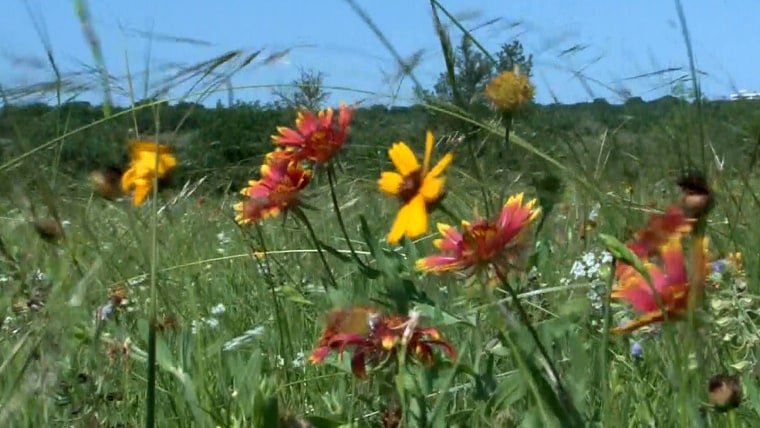Global warming will bring much more sneezing and wheezing to Europe by midcentury, a new study says.
Ragweed pollen levels are likely to quadruple for much of Europe because warmer temperatures will allow the plants to take root more, and carbon dioxide will make them grow more, researchers reported Monday in the journal Nature Climate Change. They said other factors not related to human-caused climate change will also contribute.
Ragweed isn't native to Europe, but was imported from America in the late 19th century. It hasn't quite become established all over the continent, at least not yet. Parts of France, the United Kingdom and Germany don't have the allergens now, but they will by 2050, says study co-author Robert Vautard, a climate scientist at the Climate and Environment Sciences Laboratory in Yvette, France. That includes Paris, where Vautard lives.
"As warmer temperatures and higher carbon dioxide concentrations allow ragweed to become more vigorous and invade further north, we can expect to see many more allergy sufferers," said Daniel Chapman, an invasive species expert at the Centre for Ecology and Hydrology in Edinburgh, Scotland. He did not take part in the study but praised it.
The researchers used computer simulations with different scenarios of carbon dioxide pollution for the next 35 years. If the world doesn't make a large change in emissions from coal, oil and gas, the computer runs predicted increases in the annual pollen count of 100 to 1,100 percent, with a general average of around 300 percent, Vautard said.
Earlier studies have shown that ragweed pollen season in North America already has lengthened by as much as three weeks in some northern locales, partly because of climate change.

IN-DEPTH
- White House: Climate Change Is Ruining Our Health
- 4 Cleaning Tips to Help Fight Allergies
- Tired? Depressed? It May Be Hidden Allergies